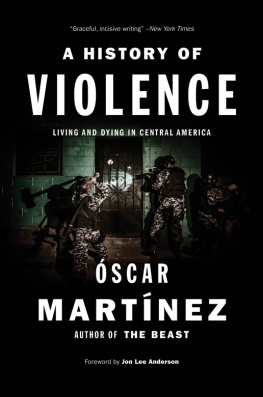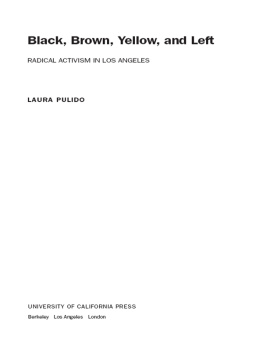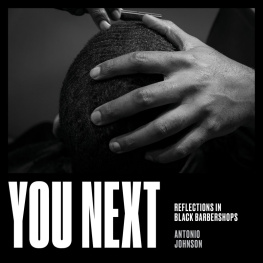Contents
Guide

The author and publisher have provided this e-book to you for your personal use only. You may not make this e-book publicly available in any way. Copyright infringement is against the law. If you believe the copy of this e-book you are reading infringes on the authors copyright, please notify the publisher at: us.macmillanusa.com/piracy.
TO MY MOTHER AND FATHER,
TWO TRAVELERS AMONG THOUSANDS
IN THE GUATEMALAN DIASPORA
PART ONE
PART TWO
PART THREE
PART ONE
ANTONIO AND THE SERGEANT
ON CROWN HILL
Neither man could claim English as his mother tongue, but it was the only language they shared. The tenant, Antonio Bernal, was from Guatemala. Through the narrow opening of a door pushed slightly ajar, he was speaking to the building manager who was about to evict him from his apartment, a Korean immigrant named Hwang. Both men squinted, each confused by the others diction, trying to decipher mispronounced words. After several minutes of mumbled exchanges, they began to toss night-school phrases back and forth like life preservers: Repeat, please. Speak slower. I dont understand.
Los Angeles was the problem. In Los Angeles, Antonio could spend days and weeks speaking only his native tongue, breathing, cooking, laughing, and embarrassing himself with all sorts of people in Spanish. He could avoid twisting and bending his lips and mouth to make those exotic English sounds, the hard edge of the consonants, the flat schwa. English belonged to another part of the city, not here, not downtown, where there were broad avenues lined with Chinese pictographs and Arabic calligraphy and Cyrillic, long boulevards of Spanish ees where Antonio could let his Central American ches and erres roll off his tongue to his hearts delight.
What? Antonio said.
I ask what you say? replied Mr. Hwang, a squat man in khaki pants and a freshly starched shirt.
I said, How much time? More time. Time, Hwang?
What time? Say again.
Say what again? Time?
No.
I dont understand.
Antonio was tired, and his accent felt a little thicker than usual. Mr. Hwang crossed his arms impatiently, as if he suspected that this confusion of tongues was only a stalling tactic, a ruse to postpone the inevitable eviction. Or maybe he was just callous, maybe he didnt care that Antonio had stayed up most of the night worrying about what he would do this morning. Antonio loosened the chain on the door and opened it wide to show Mr. Hwang that the floor of the apartment was littered with clothes and old paperbacks, proof of what he had been unable to communicate with words: he and his roommate were not ready to leave, because they had just begun to pack.
We are trying, Mr. Hwang, Antonio said slowly. We are trying.
If you dont leave by two, the manager blurted out, I have to call police.
Antonio took a deep breath and tried to compose himself, pushing his glasses up the bridge of his nose, a habit of his at moments when he felt close to violence. They were circle glasses, and when he caught a glimpse of himself in the mirror he would sometimes remember the day he first put them on, a decade ago, when he was a student at the university in Guatemala. These are my intellectual glasses, he told a friend once. I cant decide if they make me look like a chemist or a Maoist. What do you think? He had kept his circle glasses through all his travels, all the way to Los Angeles, and had worn them at his last job, as a bus boy at a now defunct diner on the Westside. One of the cooks made fun of him and called him professor. Somehow, the ideas and learning that made him strong in Guatemala had slipped away once he crossed the border, lost in the translation.
Granted, he did not speak English well, but who did? That in itself was not an explanation for what was happening to him today. Spanish was as good a language as any other. In Spanish, I sound like the intelligent person I really am. In English, I am a bus boy. But even that was dignified work. To have lifted dirty dishes, poured coffee, and worn a servants brown uniform was nothing to be ashamed of. The little brown cap did not demean him, nor did the name tag that had begun to fade after so many months until it read ANT NI .
Voy a ser uno de los homeless. It did not seem right to him that a man who loved to read, a man with Crimen y Castigo and El Idiota and countless other works of real literature scattered on the floor of his apartment, would be called this ugly word. And at the same time it made perfect sense, the logical conclusion to years of living in this cold, alien country. No Spanish equivalent captured the shame and sooty desperation of the condition, and so this compound, borrowed word would have to do: home-less.
You are making me homeless, Antonio told the manager.
If you dont leave, Mr. Hwang said in suddenly perfect English, I will call the marshals.
Antonio pushed his glasses up again. He really would like to hit this coreano. There would be some satisfaction in that. But no, he could only blame himself for this fiasco, for having failed at the mathematics of his finances. He had decided to be polite to the building manager, apologetic, because he thought he detected a note of regret in Mr. Hwangs voice when he first knocked on the door to say, You must leave. But now Mr. Hwang was threatening to call the marshals, the police of evictions. To have the police come here and treat me like a criminal. I was a bus boy, but that doesnt make me a criminal. He imagined himself being led away in handcuffs, his arms pulled behind his back, the public indignity of being marched past the neighbors.
Call the police! Antonio boomed six inches from the mans face. Call the police!
Thirty minutes! the manager yelled after taking a step back. You have thirty minutes!
Come mierda! Antonio shouted. Hijo de la gran puta.
Sip sae ki! the manager hissed in Korean.
The neighbors began to appear almost immediately. Down the length of the first floor, doors snapped open and heads popped outa dozen nameless acquaintances, people Antonio knew from hallway chitchat, glances and nods on the stairs, their startled, anxious, amused faces illuminated by the severe light of two naked bulbs that hung at either end of the corridor. The man who lived in the adjacent apartment, a lonely-looking and hirsute Mexicano, was standing bare-chested in his doorway, one foot in the hallway, the other in his room, grinning as if he expected to be entertained soon by a fistfight or shoving match. Antonio stared back at him and the other neighbors with his best impersonation of a madman, eyes ablaze, nostrils flaring.
Me est sacando a la calle! he shouted. And then, in English, so that everyone would understand: Hes throwing me on the street!
More doors opened, and the hallway audience grew. A dozen people were standing in the buttermilk yellow corridor now, along with three children who had been playing with toy cars on the grime-stained carpet of the lobby, next to the rows of mailboxes without any names on them, just numbers. A crowd of brown eyes was trained on Antonio and the building manager, who was known to the residents, depending on their mother tongue, as el chino , the manager guy, el manager, or Mr. Chang. Antonio, who had lived in this building for a year, was one of the few people who knew Mr. Hwangs real name.
Chang is getting really pissed, said a voice in the corridor. I never seen him like that.










